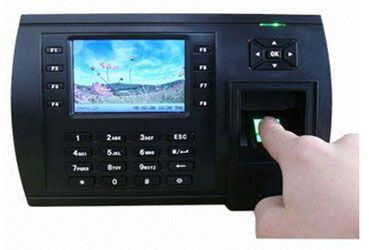Written by: Allied Time
If your employer has put in biometric time clocks, it’s not unusual to have some reservations and concerns. This is rather natural, since it is a relatively new technology that seems quite different from what we’re used to. In spite of that, using biometrics to clock in is usually much more secure and accurate than traditional methods such as time stamps or magnetic stripe cards.
You may be worried about whether or not a fingerprint time clock system’s biometric data is secure. Any system is at risk of being hacked, should a knowledgeable enough person be so inclined, so this is a very reasonable concern. However, these systems do not store your fingerprint in its entirety. After reading your print, it is processed against the string of numbers related to a several key elements of your fingerprint. This string can not be reverse engineered into your exact fingerprint, and the print from the reading is discarded after checking for a match. Your discarded cup of coffee would be more useful to someone trying to steal your fingerprint.
Along the same lines, should a police investigation look into a business with biometric system installed, it wouldn’t obtain much more information about you than a business with a convention time card clocking system. The biggest difference would be that the biometric system is much more reliable since you couldn’t have a co-worker clock in for you.
Another plus, since all you need is your fingers, it’s not possible to lose a time card, magnetized card, fob, etc. that you may need to pay out of pocket to replace. Even if you don’t lose anything, a biometric system should be as quick, or quicker, than your current system since you don’t have to fish the device out of your belongings each time you want to log your time.
A cut or abrasion may prevent the device from correctly recognizing your primary finger. For this reason, it is common for you to register two or more digits when the system is being set up. This will help ensure you’re still able to log your time in unfortunate case of an accident preventing your primary digit from being scanned.
In the end, time clocks that use your biometrics will be typically be much quicker and more accurate than traditional methods of keeping track of your working hours.

